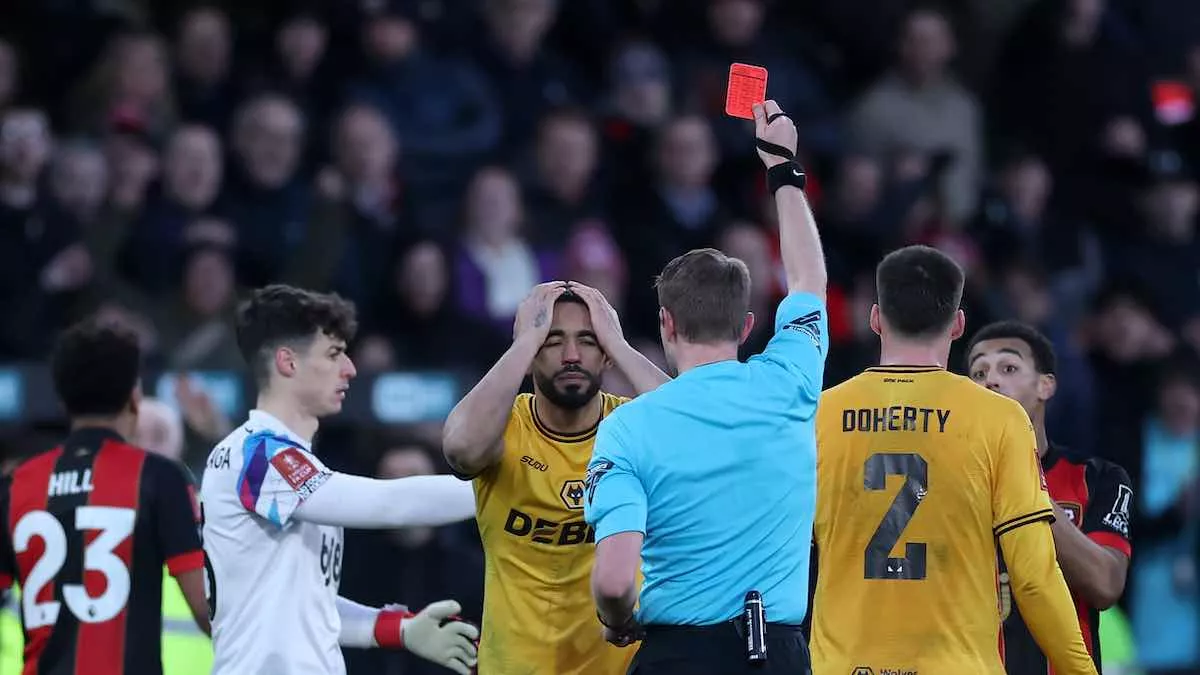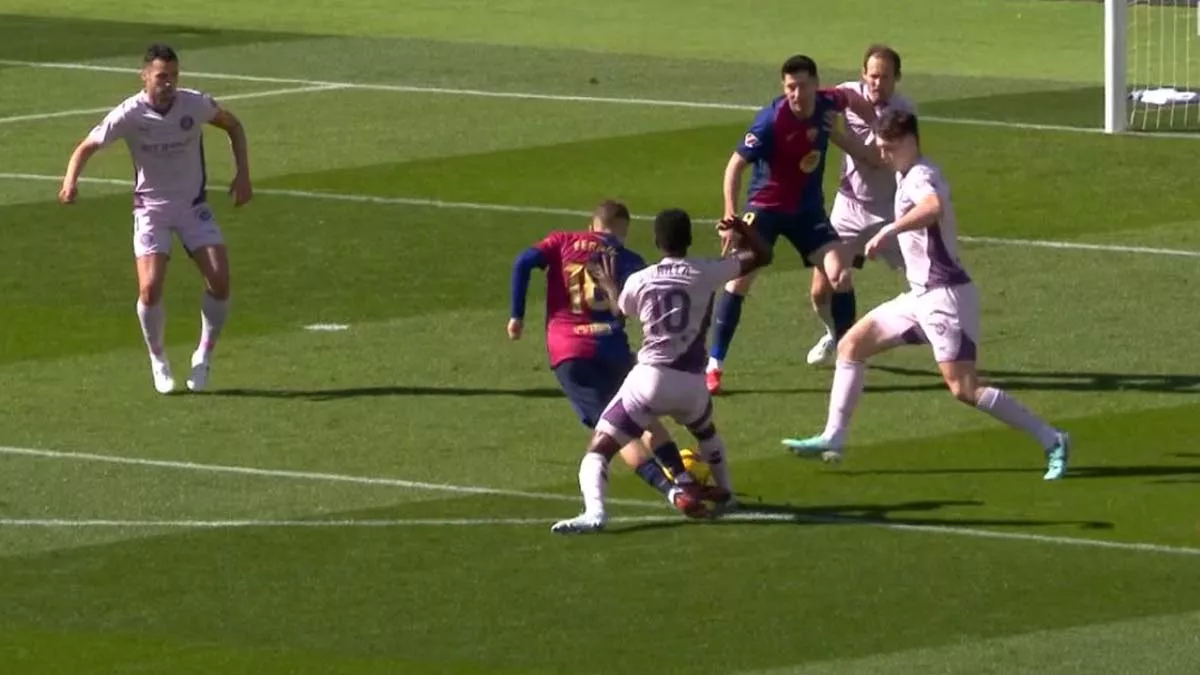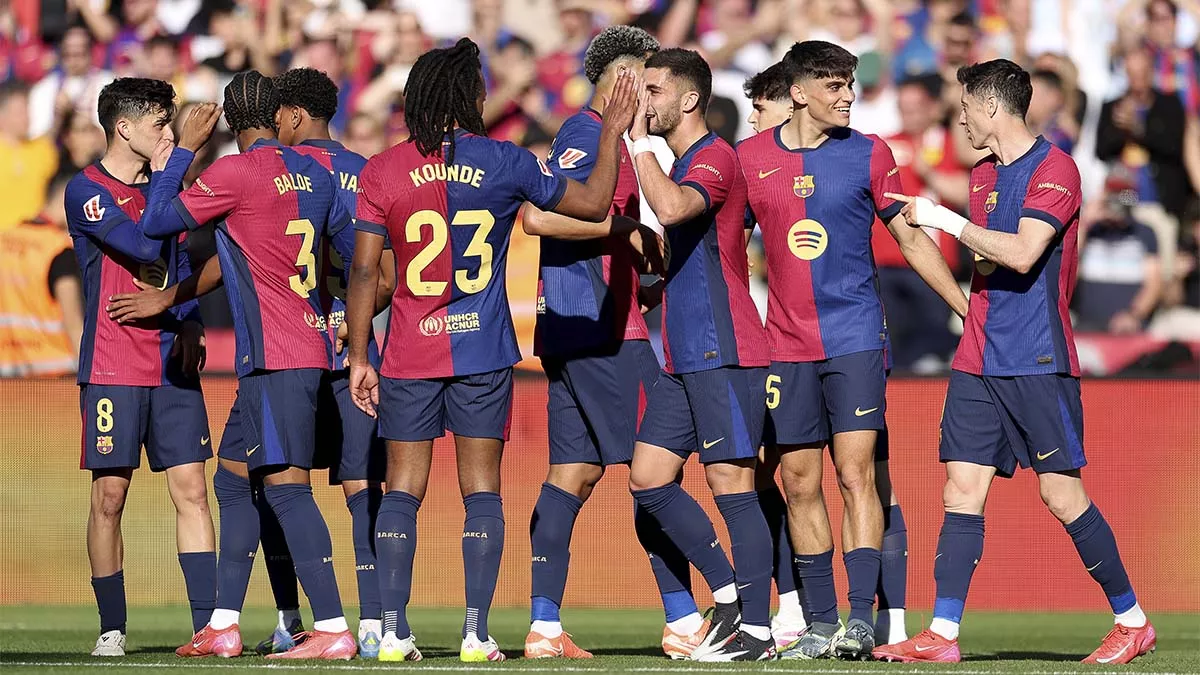
INTERNATIONAL FOOTBALL
The new rules that will change football as we know it
The IFAB presents new rules that will revolutionize football in the upcoming season.
The International Football Association Board (IFAB) has approved new rules that will change football as we know it. These regulations focus on improving the flow of the game, reducing the number of interruptions, and adapting to new technologies that have begun to significantly influence professional football. Changes will be introduced in the rules regarding neutral drops and the ball in play. The "Wenger Law," which proposes modifying the offside rule to favor attacking football, will remain in the testing phase for now.
Restrictions on time-wasting. Goalkeepers will have only 8 seconds to put the ball back in play once they have possession. If they exceed this time, a corner will be awarded to the opposing team instead of an indirect free kick, and referees will use a five-second countdown with their hands to indicate the remaining time.
Adjustments have been made to how fouls and cards are sanctioned, which could have a significant impact on the dynamics of matches. These changes are intended to make football more dynamic and appealing to spectators, eliminating the controversies that often arise from lengthy review times. There will also be changes to the rules regarding the ball out of play and the ball in play.
The IFAB wants to modernize football: Changes in VAR and refereeing
Among the most relevant changes are modifications in the use of VAR, which will be more efficient and involve fewer unnecessary reviews. Competitions may opt for the referee to make public announcements after reviewing a play.
What specific changes have been proposed for minimalist VAR? Minimalist VAR, also known as Football Video Support (FVS), is a proposal from the IFAB to make the technology for reviewing plays more accessible. The specific changes proposed for this system are:
Use of fewer cameras: The FVS requires a very limited number of cameras, making it more cost-effective and accessible for leagues with fewer financial resources.
No VOR room: Unlike traditional VAR, the FVS does not have a video assistant referee (VOR) room or assistant referees constantly reviewing plays.
Reviews requested by coaches: Instead of referees initiating reviews, coaches will have the ability to request up to two reviews per match when they believe an obvious error has been made.
Use of a green card: Coaches must show a green card to the fourth official to request a review.
Implementation in lower leagues: This system is planned to be tested in competitions with less financial power. For example, in Spain, there are plans to implement it in Liga F (women's football).
These changes aim to balance the need to review plays with cost control, allowing more competitions to benefit from the technology.
How will body cameras for referees be implemented?
Referees will wear body cameras to monitor player behavior and improve their safety, and only captains will be allowed to approach in specific situations to enhance communication and mutual respect. FIFA will test body cameras at the upcoming Club World Cup 2025, which starts on June 14.
A device called "RefCam" will be used, mounted on the head of the main referee and integrated into the usual communication system. The device will be placed near the referee's eyes to obtain an angle similar to their vision. This trial aims to identify potential future uses and develop quality and safety standards.
Camera usage protocol
- The default position of the camera will be OFF during the match.
- The referee will activate the camera only in exceptional circumstances.
- When they feel in danger or their safety is threatened.
- During expulsions (red card) or serious incidents of misconduct.
- The referee must inform players when the camera is being activated.
Objectives and benefits
- Improve the behavior of players and coaches towards match officials.
- Provide additional safety and protection for referees.
- Increase transparency and accountability in refereeing decisions.
- Discourage verbal and physical abuse against referees.
Legal and ethical considerations
- Recordings will be the property of the corresponding national federation.
- Players will be notified in advance about the recording.
- Images will not be broadcast live on TV or in the stadium during matches.
This implementation represents a significant step in the integration of technology in football, seeking to improve the quality of refereeing and the safety of officials.
What competitions will be used to test the new offside rule?
The "Wenger Law", which proposes modifying the offside rule to favor attacking football, will remain in the testing phase. The new offside rule is being implemented in the following competitions: Youth tournaments in Italy and Sweden: These lower leagues have served as the initial testing ground for the rule, focusing on promoting attacking football and analyzing its impact on the game.
FIFA competitions: FIFA is expected to conduct additional tests in certain tournaments under its organization, although it has not specified which ones will be exactly. The goal of these tests is to assess how the modification affects the development of the game before deciding on its widespread implementation.
The new rules have also been designed to take into account the evolution of football in terms of speed and strategy, so some coaches and players have already begun to adapt to these new demands.
With these reforms, the IFAB seeks to modernize the king of sports and adapt it to the demands of the 21st century, seeking a balance between tradition and innovation, reducing time-wasting, improving transparency in refereeing decisions, and promoting a more fluid and attractive game.
How will the new rule against time-wasting by goalkeepers affect the game?
The new IFAB rule that penalizes goalkeepers for holding the ball for more than 8 seconds will have a significant impact on the development of matches. Below are the main anticipated effects:
Impact on the pace of the match
Reduction of time-wasting: The rule aims to speed up the game, eliminating deliberate strategies by goalkeepers to "scrape" seconds in favor of their team. This will encourage a more dynamic and continuous pace.
Increased offensive pressure: Rival teams may intensify pressure on goalkeepers to force errors or accelerate the release of the ball, which could create more offensive opportunities.
Strategic changes
Tactical adaptation: Goalkeepers will need to adjust their ball handling, reducing possession time to avoid conceding corners to the opponent. This could influence defensive strategies and ball distribution from the area.
Less referee tolerance: The implementation will include a visual five-second countdown by the referee, making the application of the rule stricter and reducing discretion in its interpretation.
Initial doubts: There is uncertainty about whether there will be a period of adaptation or tolerance during the first months after the rule comes into effect (July 1, 2025).
Psychological impact on goalkeepers: The pressure to comply with the limit could affect decision-making under critical situations. In summary, this rule promises a more fluid and fair football experience, although it will also require significant adjustments from players, coaches, and referees.
What are the main modifications in the new IFAB rules?
The main modifications in the new IFAB rules for the upcoming season are:
- Goalkeepers will have only 8 seconds to put the ball back in play once they have possession.
- If they exceed this time, a corner will be awarded to the opposing team instead of an indirect free kick.
- Referees will use a five-second countdown with their hands to indicate the remaining time.
- Referees will wear cameras as part of the live broadcast of matches.
- Coaches will have the ability to request up to two reviews per match.
- Coaches must show a green card to the fourth official to request a review.
- Competitions may opt for the referee to make public announcements after reviewing a play.
- Adjustments in how fouls and cards are sanctioned.
- Changes in the rules regarding neutral drops and the ball in play.
- Use of fewer cameras and no VOR room.
- The offside rule to favor attacking football will remain in the testing phase.
These new football rules seek to increase real playing time, improve transparency in refereeing decisions, and promote an attractive game. Most of these changes will come into effect from July 1, 2025.





